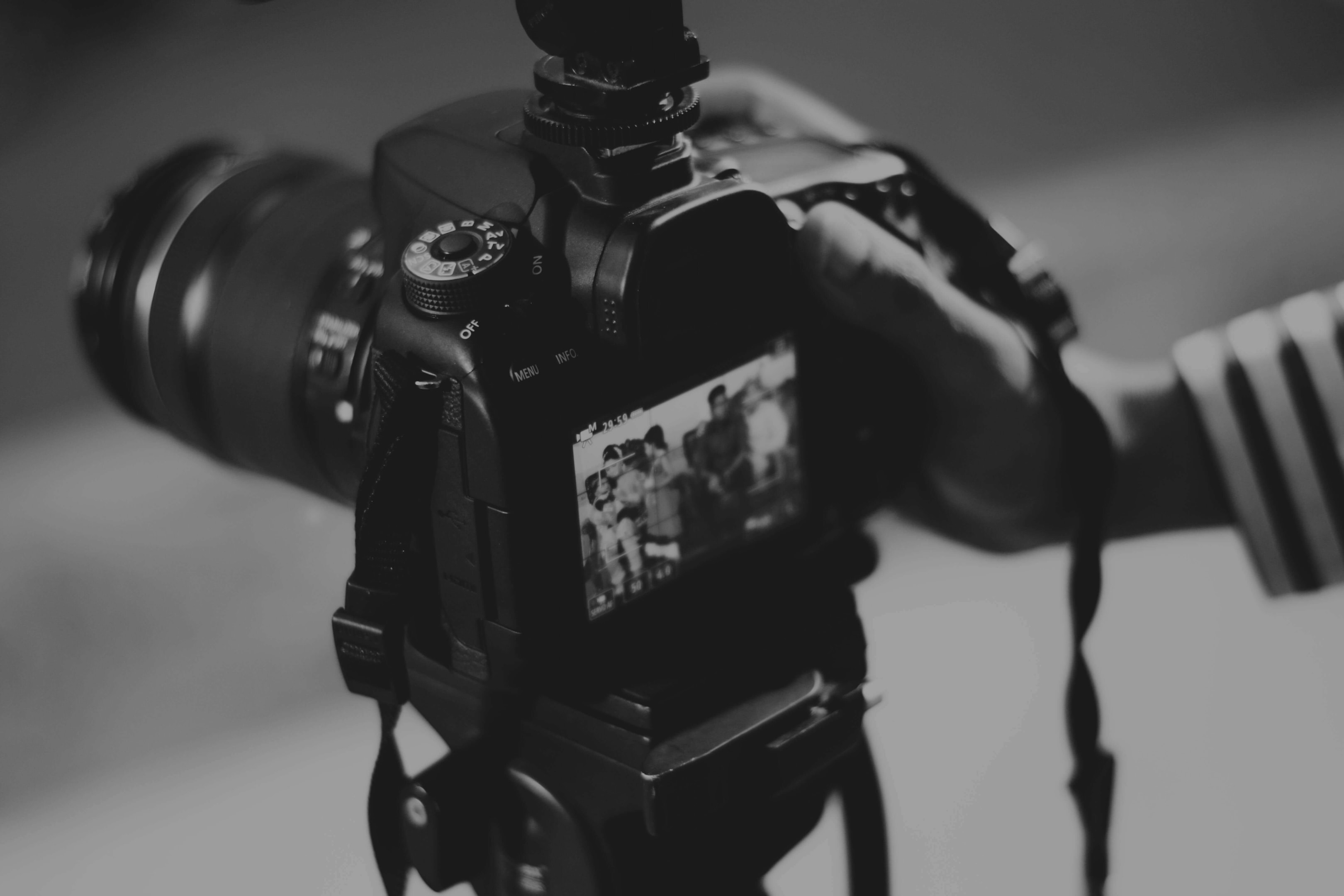21 Event Planning Tips Before, During, and After Your Event
When it comes to planning a successful event, it can be more difficult than you expect. Here are 7 things to help you plan better.

A good event often goes to the picture frames, nostalgia frames, and more importantly your memories. When you think of an event, you feel excited and can't wait to skip to the good parts (food, drinks, friends, pictures, and fun). However, when it comes to planning a successful one, you find that it is way more difficult than you expected.
As you dive into this blog post, you'll learn what goes into planning an event and 21 major planning tips for a successful event.
These tips apply whether you're throwing a wedding party, a birthday party, a corporate event, or a private event.
What goes into planning an event?
Event planning is not limited to weddings and other social parties. It can also cover conferences, seminars, corporate events, workshops, festivals, and private events.
Among a long list of things, what goes into event planning includes setting goals and objectives, reserving a venue and other items, finding great media coverage, and confirming your guest list.
Planning tips for before an event
You probably have a long event checklist prepared, and it includes everything you need to plan a successful event, but how about when an unexpected challenge arises? Will you be well prepared?
This section dives into event planning tips before for before the big day. These factors are sometimes overlooked, but when included in your event plan, can save you a lot of time and stress.
1. Have a realistic budget
After setting the goals of an event, gathering information about the theme, the people involved in the event, and the purpose of the events, one of the next steps is creating a budget for the event.
Your budget as an event planner covers various products and services including vendors for decoration, catering, equipment, and other services.
When creating a realistic and practical budget, you should consider economic changes or stability that may affect the cost of the services over time and you should also consider spending on unexpected expenses that need to be resolved.
With this being mentioned, there should be a section on your budget allocated to cases of increased cost or miscellaneous expenses.
2. Take everyone's food choices into consideration

The last thing you want at your event is guests murmuring and shaking their heads disapprovingly at your non-diverse food choices or a guest passing out because of an allergy.
Before you arrange food and drinks, make sure you remember people who might be vegans, people with allergies, and people with medical conditions.
This is one of the best corporate event planning tips because the guest list is prepared beforehand, and it allows you to learn more about your guests for proper planning.
3. Start making calls early
This tip applies more to corporate events where sponsors and top-tier special guests are needed. You want to have a strategic partnership mapping that outlines the names, contact details, and min-profiling of these key guests or employees in potential partner companies.
In event planning, making these calls early allows you to hit your partnership goals and secure partners to acquire key resources and mitigate risk where necessary.
From here, an event planner should look at relationship management and follow-up communications where necessary.
4. Reserve extra food and table items
On the subject of food, remember to reserve extra food and table items in advance. Take a wedding as an example. You know mothers can bring more guests than you told them to bring, plus there may be other unexpected family members who will show up.
You don't want to be unprepared for such occasions, and you also want to avoid the ‘we didn't see food” mantra as best as you can.
Apart from preparing food for the exact number of guests, reserve some extra for unplanned events and people who may want to eat more and prepare extra table items like napkins, cutleries, and decor for accidents. A good rule of thumb is to order 10% extra food.
5. Delegate responsibilities
Event planning checklists can be as long as a giraffe's neck, and managing all these tasks alone can lead to stress which affects your productivity and efficiency.
For an event planner with a team, delegation comes easy, however, a solo event planner might need to get creative with this.
If you don't have an event planning team, you could assign small tasks to the host or teams involved in planning the vents or you could also involve the vendors at hand with tasks related to what they do.
6. Understand your audience
For some events, the host may be the center of the theme and the party, like a wedding or birthday party.
However, for an event to have everyone interested in it, you need to understand your audience what their needs are, their preferences, and their dislikes. This ensures that you get services like catering, music, and decoration just right.
This personalization technique can be extended for different types of audiences but you’ll need to segment them to better think of how you can blend their preferences or find an intersection.
7. Prepare engagement strategies in place

Most events don’t just offer food and opportunities but they offer an unforgettable experience. These experiences can be motivation, fun, or simply being part of something big and new.
Some good ways to engage your guest or audience are to have fun activities like games, trivia, volunteering or demo activities, or simply good entertainment to make your audience laugh.
Finding the perfect engagement strategy for event planning depends on the audience. It would be best if you carried out a profiling that gives information about the general details of the audience, these details can include age group, shared interest, and reason for attending the events.
These engagement activities can come before, during, and after the event.
8. Prepare backup technical equipment and have a test run
The D-day of an event is a great time for your most reliable cord to malfunction. It is common to have challenges with media coverage and equipment during an event, so it's always a good idea to check the cords you have and batteries in all equipment and remotes.
Always remember to do test runs before the event to ensure that all your electronics (TVs, speakers, AVs, and cameras) are working perfectly fine.
It is common to have challenges with media equipment and coverage during an event, so it's always a good idea to check everything in advance. You can do this by agreeing to a test run with the MC, DJ, live bands, and everyone else providing media-related services. They can do this the night before the event or on the morning of the event.
Remember to put a trusted person on the test run with them. You can tell that sibling or friend of yours who has an ear for good sound to help you out with this instead of doing it yourself.
You can also encourage your vendors to have backup equipment in case one fumbles. For instance, having an extra microphone will put your mind at rest if the main one malfunctions.
9. Anticipate traffic issues
Traffic can become an issue at events that involve a large crowd. Anticipate this occurrence and take measures, such as partnering with the local government if it's a festival or a huge event or placing volunteers or staff members in specific areas as part of a traffic control plan to keep things organized.
For event planning, these measures can take place by strategic partnership whether your event is big or involves a small circle.
10. Know your vendors and negotiate with them

Selecting the right vendors for your event requires a lot of work, but the perfect one can prevent a lot of hassle.
Ideally, you want to choose a vendor that offers exquisite service and you can check this by looking at online ratings on platforms like GoldnLilies or by reaching out to their past clients. You could also source vendors from events you considered to be successful.
Selecting a great vendor is just half of the full equation, the other half is finding one that fits your budget. Each vendor comes with their quote, and you want to be talking with the ones a little higher or lower than your budget.
Make sure you negotiate to get the best deals out of your desired vendor. You could offer them the benefits of working with you, one of these benefits can be your clientele base and frequent bookings.
11. Organize load-in schedule
As obvious as this seems, several people often go wrong here. Plan the arrival, loading, and departure of vendors who provide services like staging, lighting, food and beverages, and other decorative services.
It is important to give them the time they need to set up and organize their services and plan their order of work. The worst-case scenario is having a vendor show up late or walk around the venue during the event. This event planning strategy prevents chaos and minimizes the time you spend waiting for each vendor.
An ideal way to do this is to plan out the times and communicate it to the vendors early on so they can be organized. The vendors should come to the venue before the event to get familiar with proper coordination.
12. Define success metrics

An event can go through from planning to implementation but can still be labeled as an unsuccessful event. For event planning, you should consider the goals of the host of the event, and the metrics are set based on these goals.
Some metrics you can track as an event planner include guest count, guest satisfaction, engagement rate depending on the type of event, and level of publicity on social media or other platforms depending on the type of event.
Some of these metrics can be monitored easily because they are quantitative, however, the others may require that you run short surveys. The results of these metrics help you identify successful areas and areas where you need improvement.
Check out GoldnLilies to get access to only the best vendors across Africa.
13. Start planning early
This last point supports everything we've said here today. If you start very early, you'll discover that event planning can be a breeze because it allows you to make the right decisions with no rush.
You will be able to think carefully to identify and plan for all potential situations. Planning early also gives your vendors enough time to plan and prepare, making the whole process more organized and less stressful.
Starting on time also helps you enjoy the process of event planning and watching the plans all come together to make great memories and wonderful experiences.
Event planning Tips for during an event
This section covers tips for the event when it's happening. When planning an event, you want to keep the tips tucked close to you as you can easily forget about them when the event is ongoing.
14. Prepare to be flexible and adaptable
Much like anything in life, an event is full of uncertainties and there’s only so much you can predict and plan for.
Issues like weather changes, time changes, changes in guest preferences, disruptive audience behavior, and medical emergencies require you to be flexible and adaptable without causing too much chaos.
In general, you want to try and accommodate as many of the guests as possible when events like this occur.
15. Take pictures of everything

A camera captures moments that will be embedded in memories and most importantly create moments that can be shared with the world.
Event planners aim to do great jobs on all their projects to attract new clients and keep existing clients loyal. Documenting events from planning through implementation is a great way to build your visual portfolio and attract new clients.
You can have a photographer come along with you or collaborate with the hired media vendor for the event to get essential content when it’s all over.
16. Go online or go home
The original saying is “Go big or go home” but in this case, we’re talking about your online presence. More than half of the world’s population uses social media so you’re missing out if you are not maximizing your online presence as an event planner.
Photographs, videos, and other media content going up on your social media can serve as a portfolio of potential clients you are unaware of.
A great way to maximize social media as an event planner is to promote an event and invite your followers to do the same by using custom templates or hashtags.
17. an event etiquette guide
Event planners often underestimate the importance of having etiquette guides distributed to the guests, staff, and vendors who will be present for an event.
A simple etiquette guide will include information on dress code, behavior expectations, and how the interaction at the event should be.
Creating this guide ensures that your team appears professional throughout the event and everyone behaves cordially with one another. This is one of the event planning tips best used for formal events.
18. Take short surveys during the event
Taking surveys from the guests of an event allows you to know how everything played out including if it was a success or not. This survey allows you to identify your strengths and weak points as an event planner.
Your surveys can be done manually by passing forms for guests, vendors, staff, and even the host to fill out at the middle or end of the event.
You could also try out a huge banner inviting guests to openly leave their reviews, this makes it a fun experience for them. If your event guests are tech-savvy, you could link them to an online form to get their responses.
Event planning tips for after an event
You may feel relaxed after an event planning journey with a client and maybe you might be tempted to a a vacation as a reward or treat yourself to your favorite food. The bad news is that the journey is not yet over.
Here are some planning tips for after an event has been concluded.
19. Analyze responses from surveys
One of our tips during an event is to collect responses from your guests, staff, and vendors about the event’s performance. After having a good rest or break from the event, look at the responses to determine what you did right and wrong during the event, what guests would like to see in that kind of event, and what they would not.
These responses help you to plan events for that particular client better or help you plan events with similar themes and audiences. This analytical skill also makes you a better event planner which increases your worth in the market.
20. Ask for a referral

It may seem like a pushy or weird thing to ask for a referral from your host after an event, but you should know that for event planners, referrals or word-of-mouth is the biggest source of new clients
When asking for a referral, you should do that a few days after the event and be polite in your communication. Also, ensure that your client was satisfied at your last event to have a better chance of getting a referral.
21. Revise and improve your process
Event planners like many people have a template for achieving their goals for every event. This process can be a step-by-step guide for planning, implementation, or communication and it helps you stay organized and efficient
You want to look at your process as an event planner, reflect on your last project, and think of occurrences that made you change your plans or usual way of working. You could use this reflection to improve your existing process or you could create a new process for that specific event with such occurrence. This habit helps you handle similar events with little to no mistakes
Summary
Planning a great event requires proper preparation, applying some of these successful event planning tips, you are already halfway there. Also, remember that event planning can be seamless if your checklist and processes for planning, vendors, and communications are all in one place.
Want to connect with the best vendors without the stress?
Join our waitlist to access vendors that fit your budget with no compromise on quality.




